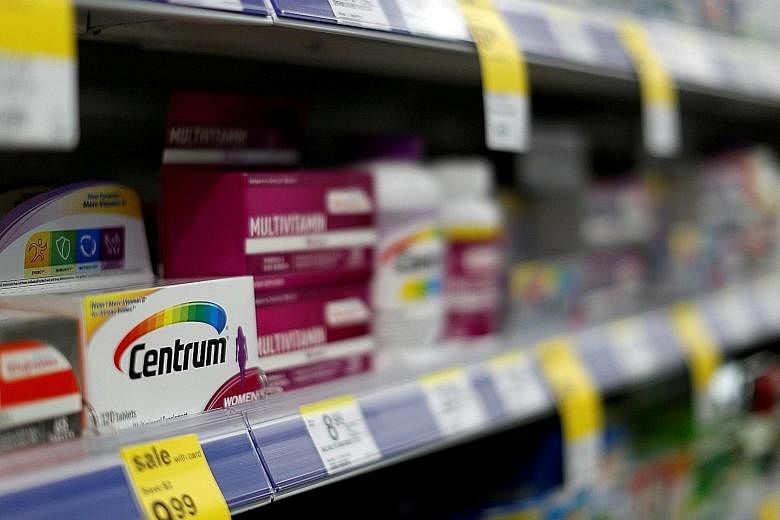NEW YORK • Pfizer said it was considering the sale or spin-off of its consumer healthcare business, shaking up the industry and potentially putting the headache pill-to-lip balm operation worth some US$15 billion (S$20.4 billion) up for grabs.
The move comes as Germany's Merck is also looking to divest its non-prescription products, including brands such as Seven Seas vitamins, which could be worth around US$4.5 billion.
As ageing populations and health-conscious consumers drive demand for self-medication, the fragmented consumer health sector has proved a fertile ground for deal-making in recent years.
Although consumer remedies sold over the counter have lower margins than prescription drugs, they are typically very long-lasting brands with loyal customers.
Pfizer's consumer healthcare business, whose brands include painkiller Advil and lip balm ChapStick, had revenue of about US$3.4 billion last year. Industry experts said it could fetch some four times' worth of sales, implying a potential value of just under US$14 billion, although two healthcare sector bankers said Pfizer was aiming for at least US$15 billion.
People familiar with the matter said Swiss food giant Nestle could be among those interested, along with manufacturers of over-the-counter treatments and private equity firms.
Established consumer health companies that may be interested in the Pfizer assets include Reckitt Benckiser, Procter & Gamble, GlaxoSmithKline, Johnson & Johnson and Abbott.
They could be joined by Nestle, which is exploring the boundaries between food and healthcare. Nestle's new chief executive Mark Schneider told investors last month that it would keep identifying new opportunities, and that 10 per cent of group sales could be ripe for portfolio adjustment.
Bayer and Sanofi may be less likely to bid, despite their consumer health presence, given that they are busy absorbing Monsanto's and Boehringer Ingelheim's consumer businesses respectively.
In explaining the thinking behind the review, Pfizer chief executive Ian Read said on Tuesday that consumer healthcare was connected but not integral to its core prescription drug business.
"Although there is a strong connection between consumer healthcare and elements of our core biopharmaceutical businesses, it is also distinct enough from our core business that there is potential for its value to be more fully realised outside the company," he said.
Options to be considered include a full or partial separation through a spin-off, sale or other transaction.
Pfizer may also ultimately decide to keep the business.
REUTERS

